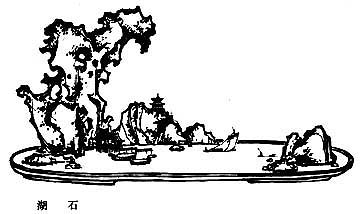Shi Jing 
 – Le Canon des Poèmes
– Le Canon des Poèmes
Le plus ancien recueil connu de poésie chinoise, plus de trois cents chansons, odes et hymnes. Tr. Legge (en) et Granet (fr, incomplète).
Shijing I. 10. (125)
Would you gather the liquorice, would you gather the liquorice,
On the top of Shouyang ?
When men tell their stories,
Do not readily believe them ;
Put them aside, put them aside.
Do not readily assent to them ;
And, when men tell their stories,
How will they find course ?
Would you gather the sowthistle, would you gather the sowthistle,
At the foot of Shouyang ?
When men tell their stories,
Do not readily approve them ;
Put them aside, put them aside.
Do not readily assent to them ;
And, when men tell their stories,
How will they find course ?
Would you gather the mustard plant, would you gather the mustard plant,
On the east of Shouyang ?
When men tell their stories,
Do not readily listen to them ; –
Put them aside, put them aside.
Do not readily assent to them ;
And, when men tell their stories,
How will they find course ?
Legge 125

Le Canon des Poèmes – Shi Jing I. 10. (125) – Chinois off/on – Français/English
Alias Shijing, Shi Jing, Book of Odes, Book of Songs, Classic of Odes, Classic of
Poetry, Livre des Odes, Canon des Poèmes.
Le Canon des Poèmes, Les Entretiens, La Grande Étude, Le Juste Milieu, Les Trois Caractères, Le Livre des Mutations, De la Voie et la Vertu, 300 poèmes Tang, L'Art de la guerre, Trente-six stratagèmes
Bienvenue, aide, notes, introduction, table.
Index – Contact – Haut de page
